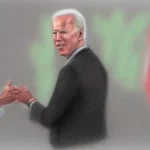You Might Also Want To Explore This:
“General Mark Milley: Hero or Villain? Uncovering the Reality”
The tenure of General Mark Milley as the Chairman of the Joint Chiefs of Staff has been marked by a series of controversies and criticisms. In the first place, there are those who argue that Milley’s actions have undermined the principle of military neutrality in domestic political affairs. The incident in June 2020, where he accompanied former President Donald Trump during a controversial walk to St. John’s Episcopal Church, raised valid concerns about the military’s involvement in political demonstrations. Critics argue that this displayed a lack of judgment and blurred the lines between the military’s constitutional role and politics.
In spite of that, supporters of Milley maintain that his intentions were misunderstood. They argue that his presence during the walk was merely a show of unity and support for law enforcement agencies after the dispersal of protesters. These supporters believe that it was important for Milley to demonstrate his commitment to upholding the rule of law and maintaining order in the face of civil unrest.
The alleged phone calls with his Chinese counterpart also drew polarizing opinions. Some argue that Milley overstepped his authority by independently engaging in diplomacy and undermining the Trump administration’s foreign policy. They believe that such actions jeopardized national security and undermined civilian control over the military.
However, others view Milley’s alleged phone calls as a responsible and prudent measure to prevent any potential military conflicts. Supporters argue that as a military leader, it was his duty to ensure stability and avoid any misunderstandings that could escalate tensions with China.
Milley’s role in the U.S. withdrawal from Afghanistan further fuels the division in opinion. Critics argue that the withdrawal was poorly executed, leading to the rapid takeover by the Taliban, and Milley, as one of the military officials involved, bears responsibility for the outcome. They claim that the lack of contingency plans and intelligence failures underscore a lack of strategic foresight.
In contrast, supporters of Milley contend that the withdrawal was a challenging task given the complex conditions on the ground. They praise his efforts in testifying before Congress and providing transparency into the decision-making process and intelligence failures. They argue that Milley should not solely be blamed for the outcome, as the withdrawal was a collective effort involving various entities within the government.
Wind-up, the controversies surrounding General Mark Milley’s tenure have triggered passionate arguments from both sides. While some view his actions as compromising the military’s neutrality and undermining civilian control, others argue that he acted in what he believed to be the best interest of the nation. The debate surrounding Milley’s tenure emphasizes the importance of maintaining a balance between the military’s role and its commitment to democratic principles.
Here's A Video We Thought You Might Also Like:
Author Profile

- I'm a health and wellness writer passionate about helping others live their best lives, and that includes exploring the intersection of health and politics. I examine how policies and social factors impact public health outcomes.
Latest entries
 Breaking News2023.12.19Astounding Allegations Federal Judge Faces Ethics Complaint Over Husband’s Income
Breaking News2023.12.19Astounding Allegations Federal Judge Faces Ethics Complaint Over Husband’s Income Breaking News2023.12.19Revealed The Disconcerting Truth About Biden’s Unaffordable Holidays
Breaking News2023.12.19Revealed The Disconcerting Truth About Biden’s Unaffordable Holidays Breaking News2023.12.16House of Representatives Leaves Urgent Issues Unresolved – What Will This Mean for America
Breaking News2023.12.16House of Representatives Leaves Urgent Issues Unresolved – What Will This Mean for America Breaking News2023.12.14Breaking News Game-Changing Trucking Policy to Be Unveiled at World’s Largest Truckstop!
Breaking News2023.12.14Breaking News Game-Changing Trucking Policy to Be Unveiled at World’s Largest Truckstop!






